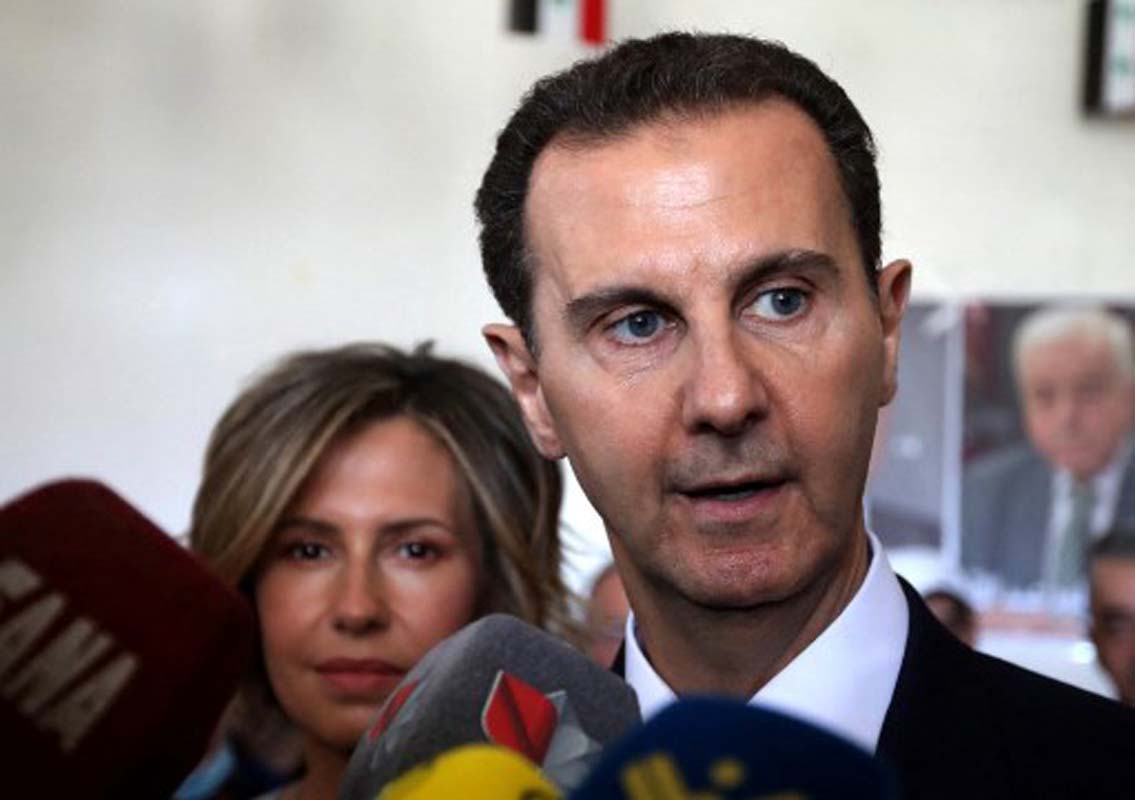
403
Sorry!!
Error! We're sorry, but the page you were looking for doesn't exist.
Israeli occupation army quickly takes action after fall of Bashar al-Assad
(MENAFN) Following the fall of Bashar al-Assad, the Israeli occupation army quickly took action, destroying numerous weapons depots in Syria and occupying new strategic heights in Mount Hermon near Damascus. These moves have sparked significant concern, raising questions about the future stability of the region. The Israeli actions have not only angered the new Syrian administration but have also drawn criticism from Turkey, which views these steps as a direct threat to its interests in Syria.
Over time, the reasons behind Israel's growing anxiety became clearer, as the Jerusalem Post reported a month after Assad's departure, referencing a security assessment by Israel's National Security Committee (NAGHL). This assessment warned of a possible Syrian-Turkish alliance that could surpass the threat posed by Iran, recommending that Israel prepare for a direct confrontation with Turkey due to its ambitions to revive Ottoman influence. Meanwhile, Israel Hayom reported that Prime Minister Benjamin Netanyahu was convening an emergency meeting with his cabinet to discuss the ramifications of Turkish involvement in Syria.
On December 9, 2024, Yedioth Ahronoth intelligence analyst Ronen Bergman criticized military intelligence for failing to predict Assad's sudden fall, accusing them of not accurately forecasting the situation. It appears that Israel had hoped Assad would remain in power, based on its strategy, which involved dividing Syria into three regions: Assad maintaining control over Damascus, with separate Kurdish and Druze entities in the north and south of the country, respectively. The plan aimed to weaken Iran and Hezbollah's influence while preventing Turkish expansion into Syria. The collapse of Assad undermined this Israeli strategy, prompting Israel to target Syria's military capabilities. In the wake of Assad's downfall, Israeli officials reportedly engaged with the Syrian Democratic Forces (SDF), exploring non-military support. Israeli Defense Minister Itamar Ben-Gvir even discussed the possibility of dividing Syria into administrative cantons. Israel has urged the United States to maintain support for the SDF to prevent other groups like Hay'at Tahrir al-Sham and Turkish-backed forces from gaining control in northeastern Syria. The SDF, in turn, has sought to leverage Israel's influence within the U.S. to prevent a full U.S. withdrawal from Syria and secure continued support. This has raised alarms in Turkey, which sees the SDF’s engagement with Israel as a direct challenge, intensifying military operations in areas like Manbij to break the SDF's defenses and further escalate tensions in the region.
Over time, the reasons behind Israel's growing anxiety became clearer, as the Jerusalem Post reported a month after Assad's departure, referencing a security assessment by Israel's National Security Committee (NAGHL). This assessment warned of a possible Syrian-Turkish alliance that could surpass the threat posed by Iran, recommending that Israel prepare for a direct confrontation with Turkey due to its ambitions to revive Ottoman influence. Meanwhile, Israel Hayom reported that Prime Minister Benjamin Netanyahu was convening an emergency meeting with his cabinet to discuss the ramifications of Turkish involvement in Syria.
On December 9, 2024, Yedioth Ahronoth intelligence analyst Ronen Bergman criticized military intelligence for failing to predict Assad's sudden fall, accusing them of not accurately forecasting the situation. It appears that Israel had hoped Assad would remain in power, based on its strategy, which involved dividing Syria into three regions: Assad maintaining control over Damascus, with separate Kurdish and Druze entities in the north and south of the country, respectively. The plan aimed to weaken Iran and Hezbollah's influence while preventing Turkish expansion into Syria. The collapse of Assad undermined this Israeli strategy, prompting Israel to target Syria's military capabilities. In the wake of Assad's downfall, Israeli officials reportedly engaged with the Syrian Democratic Forces (SDF), exploring non-military support. Israeli Defense Minister Itamar Ben-Gvir even discussed the possibility of dividing Syria into administrative cantons. Israel has urged the United States to maintain support for the SDF to prevent other groups like Hay'at Tahrir al-Sham and Turkish-backed forces from gaining control in northeastern Syria. The SDF, in turn, has sought to leverage Israel's influence within the U.S. to prevent a full U.S. withdrawal from Syria and secure continued support. This has raised alarms in Turkey, which sees the SDF’s engagement with Israel as a direct challenge, intensifying military operations in areas like Manbij to break the SDF's defenses and further escalate tensions in the region.

Legal Disclaimer:
MENAFN provides the
information “as is” without warranty of any kind. We do not accept
any responsibility or liability for the accuracy, content, images,
videos, licenses, completeness, legality, or reliability of the information
contained in this article. If you have any complaints or copyright
issues related to this article, kindly contact the provider above.

















Comments
No comment